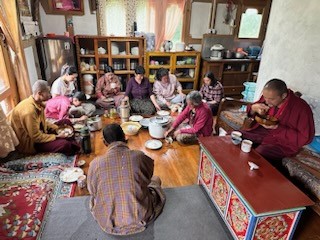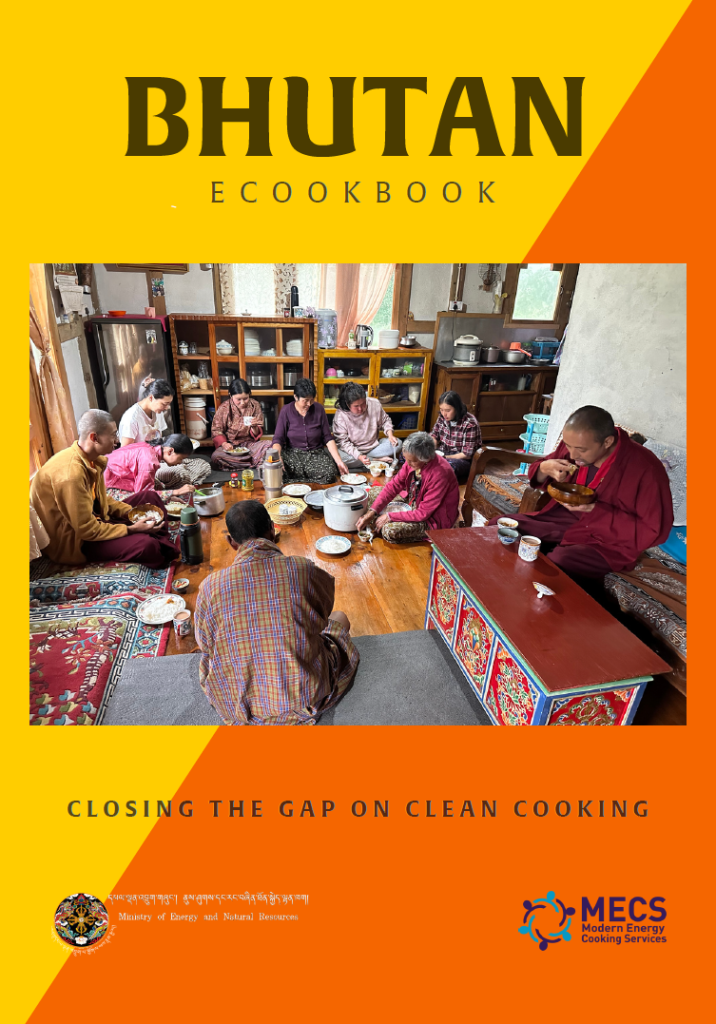
- Date
- 27th November 2023
- Categories
- General
The Bhutan eCookbook has been launched by UNESCAP in collaboration with MECS and supported by the Royal Government of Bhutan. The latest publication in the MECS eCookbook series, the eCookbook records dishes that are typically cooked in Bhutan and presents data on energy consumption and cost to set a benchmark of energy expectations and associated costs.
For this study, nine local dishes – 3 meat, 3 cheese, and 3 vegetable dishes – were selected, covering many popular dishes across different ethnic groups, and reflecting the wide Bhutanese palate. LPG, infrared, and induction cook stoves were considered for the Controlled Cooking Tests (CCT), based on testing common popular cooking technologies used by the Bhutanese population. An Electric Pressure Cooker (EPC) was also used to test its versatility and performance in cooking two energy intensive local meat dishes.
The CCT results show that shifting from LPG to electricity as a primary cooking fuel is efficient and cost effective for the Bhutanese populace. Shifting to electric cooking will help Bhutan: (a) reduce reliance on imports; and (b) move towards a greener energy regime and towards its commitment to remain carbon neutral.
Lam Dorji (Kunfen Consult, Thimphu), lead author of the eCookbook, comments: “The two major cooking fuels used in Bhutan are LPG and electricity. About 92% of urban households and 76% of rural households still use LPG and nearly imports about 10,000 metric tonnes annually. Issues such as refilling and distribution persist in rural areas. Promoting clean cooking stoves has been the priority in Bhutan in order to achieve 100 percent access to clean cooking by the end of this decade achieving 99.5% of rural households access to grid electricity. We are delighted to be a part of a clean cooking project initiatives that focus to narrow the clean cooking gap in Bhutan.
The comparative analysis results in “Bhutan eCookbook” showed shifting from LPG to electricity as a primary cooking fuel is found most efficient and cost effective, besides health benefits. Bhutan does not have natural petroleum reserves. Shifting to electricity will also help Bhutan in reducing reliance on imports of fossil fuels and towards its commitment to remain carbon neutral”.
…………………………
Featured image, top, credit: Lam Dorji, Kunfen Consult.
